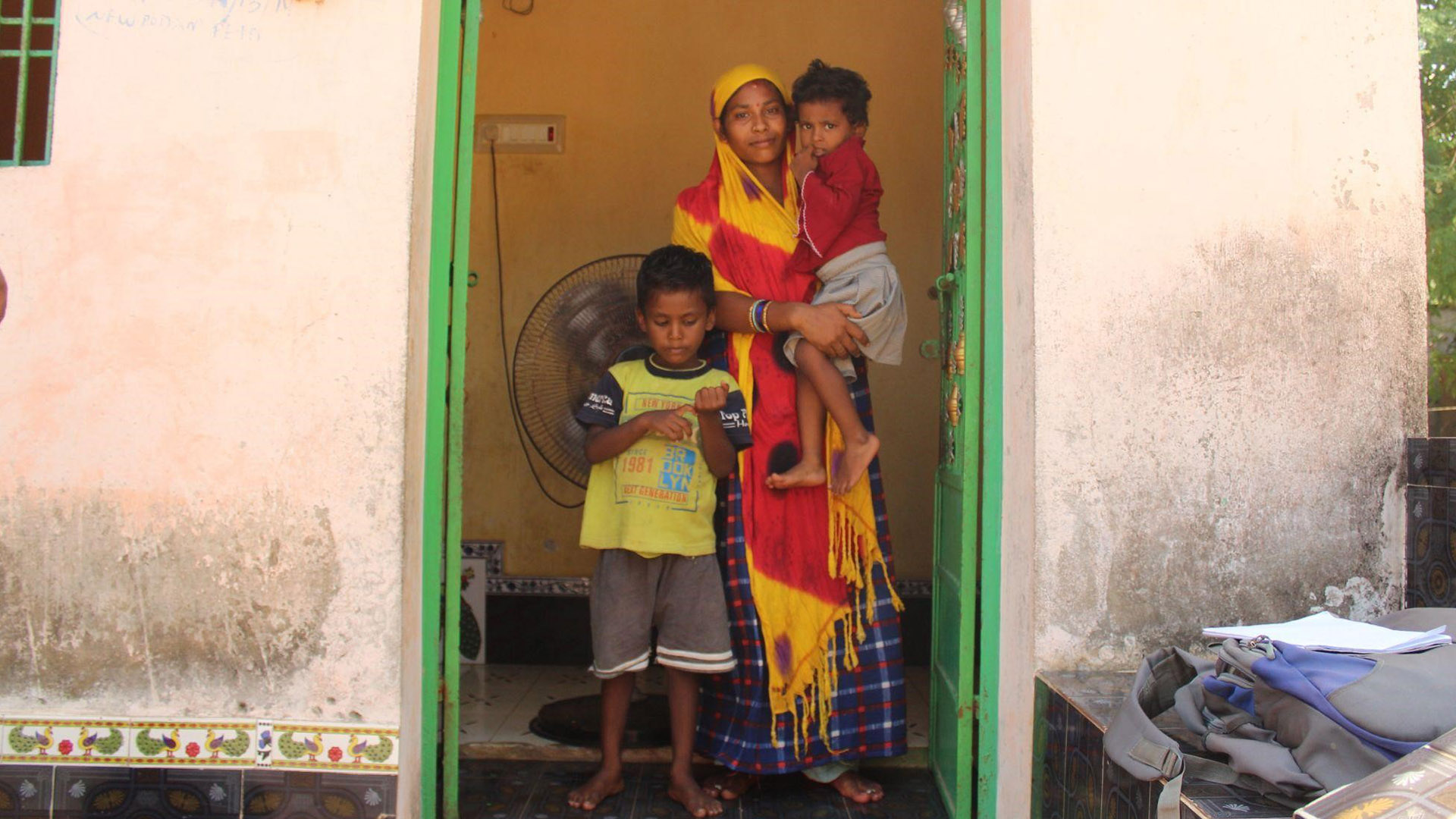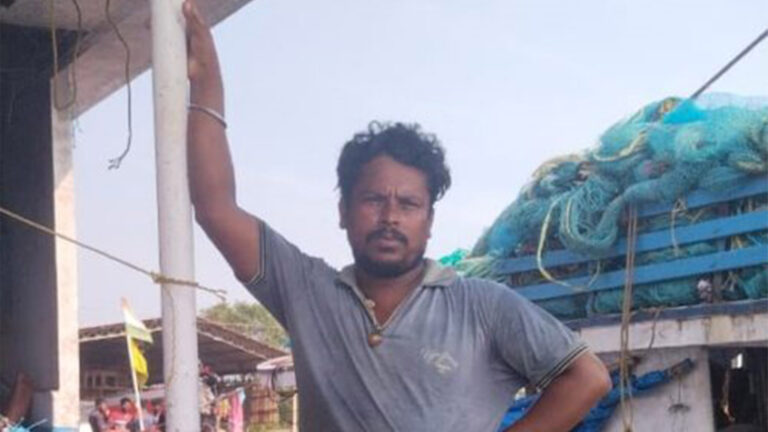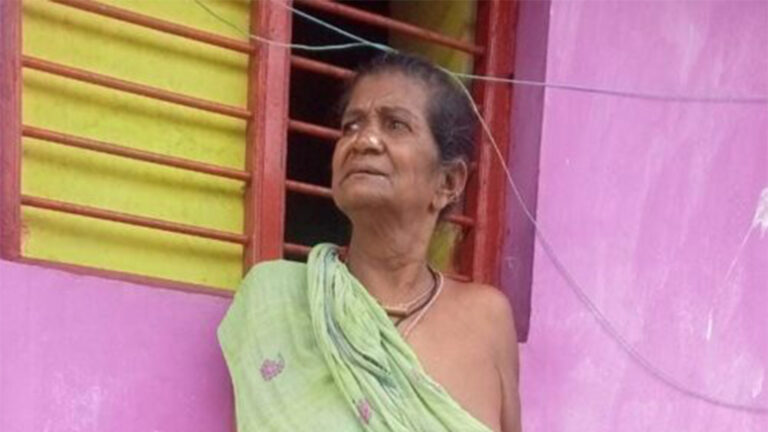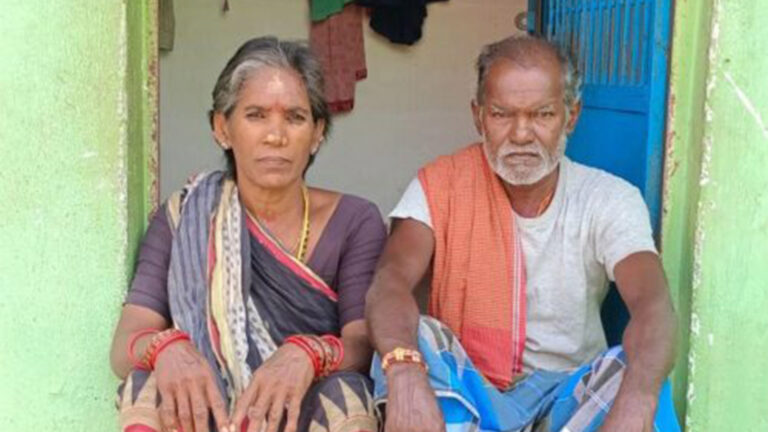Lakshmi, is a 23-year-old homemaker from Odisha’s Nua Podampeta fishing village in the Ganjam district, Odisha. S. Lakshmi married S. Shanker six years ago. She has two children, and her husband, a fisherman, has recently taken up migrant work as a fisherman working on fishing vessels all the way down the south of the country, in Kanyakumari. Lakshmi continued to live in her husband’s village even after S. Shanker, her husband, migrated for work five years ago. With Shanker remaining the sole provider of the household, Lakshmi is left shouldering the entire challenge of raising her children.

Migration is rampant among residents of Podampeta village. Photo by Ch. Pratima.
The proper payment to the fishworkers depends on the wish and whims of the trawler boat owners.
Shankar, who was an active fisher in Nua Podampeta, decided to migrate when their income began steadily dropping as a result of the decrease in fish in the village, making this poor family’s financial situation worse. Since everyone at home depended on Shankar’s income, he relocated to Tamil Nadu 5 years ago with some of the villagers, to support his family. He spent the last three years at Kanyakumari and resides in Kerala. As a migrant fisher, he too migrates seasonally, in the same manner as fish, to different places in search of good catches.
The difficulties that she faces are easy for Lakshmi to share. “We are living in a lot of hardship”. There are no proper medical services or drinking water sources in the village. The water they get is unfit for drinking, and the nearest hospital is 4 km away. Shankar now stays at home for 5 months and fishes in his village, and migrates to a different coastal state for the remaining seven months. As a group member with 10-12 people, they go fishing on a trawler boat. They stay in the sea for eight days continuously, and the owner of the trawler takes the responsibility of paying for their food and refreshments while at sea. However, when they return to the shore, they have to bear the expenses of their own food and drink. He calls his family once every eight or five days. Of the money that he receives every week or two; he keeps Rs. 1000 for personal needs and sends the rest home. Sometimes, they are exploited by the trawler owners and have to return home empty-handed and disappointed. There were situations where the fish workers were not paid when there was no good catch and less share of the profit even when there was a good catch. The proper payment to the fish workers depends on the wish and whims of the trawler boat owners.
Lakshmi says with conviction about the hardships in the village, “All these issues would have been resolved had my husband been at home.” Despite this, she knows migration was inevitable for her villagers “Even with so many issues at home, fisher people are compelled to migrate and do something to provide for their family.”



